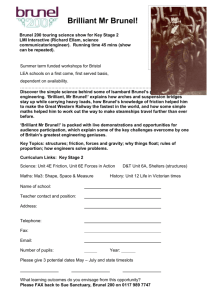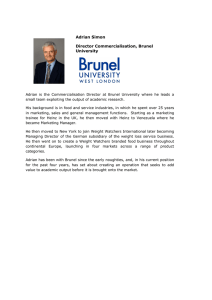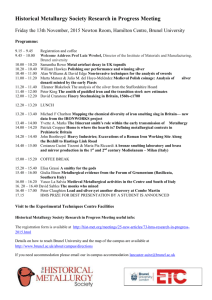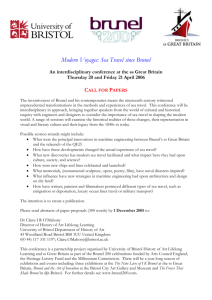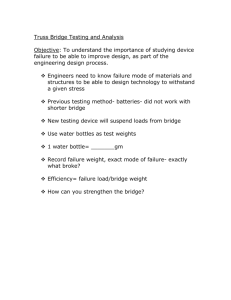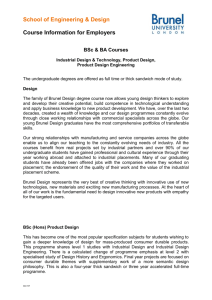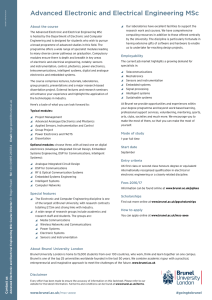Brunel - card sort activity
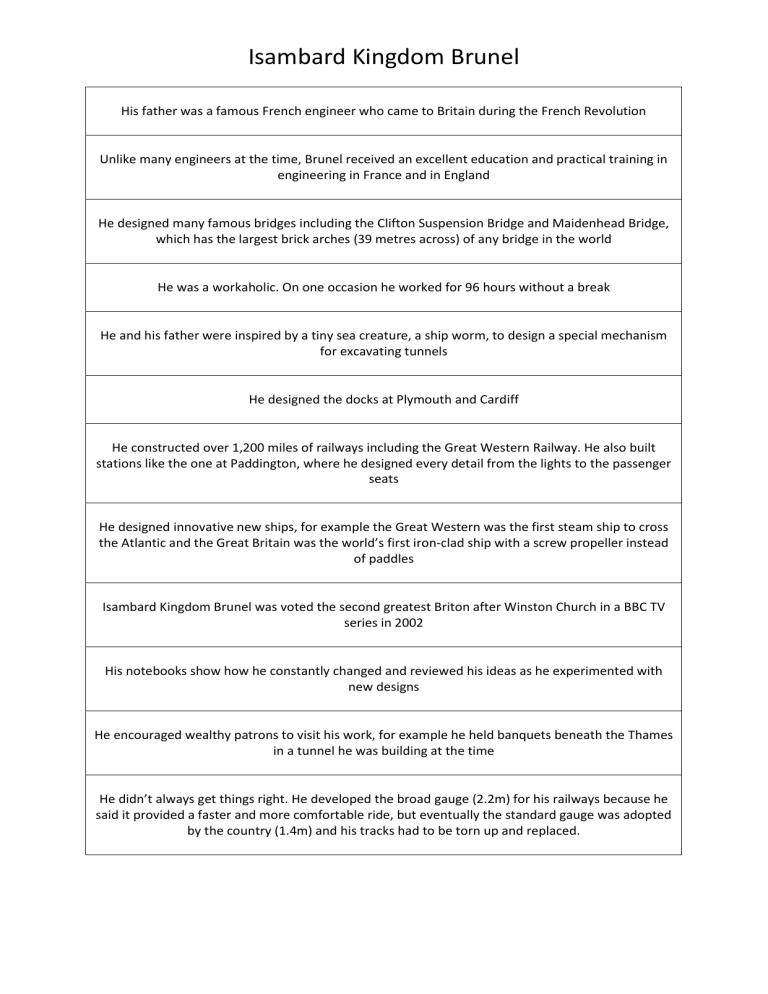
Isambard Kingdom Brunel
His father was a famous French engineer who came to Britain during the French Revolution
Unlike many engineers at the time, Brunel received an excellent education and practical training in engineering in France and in England
He designed many famous bridges including the Clifton Suspension Bridge and Maidenhead Bridge, which has the largest brick arches (39 metres across) of any bridge in the world
He was a workaholic. On one occasion he worked for 96 hours without a break
He and his father were inspired by a tiny sea creature, a ship worm, to design a special mechanism for excavating tunnels
He designed the docks at Plymouth and Cardiff
He constructed over 1,200 miles of railways including the Great Western Railway. He also built stations like the one at Paddington, where he designed every detail from the lights to the passenger seats
He designed innovative new ships, for example the Great Western was the first steam ship to cross the Atlantic and the Great Britain was the world’s first iron-clad ship with a screw propeller instead of paddles
Isambard Kingdom Brunel was voted the second greatest Briton after Winston Church in a BBC TV series in 2002
His notebooks show how he constantly changed and reviewed his ideas as he experimented with new designs
He encouraged wealthy patrons to visit his work, for example he held banquets beneath the Thames in a tunnel he was building at the time
He didn’t always get things right. He developed the broad gauge (2.2m) for his railways because he said it provided a faster and more comfortable ride, but eventually the standard gauge was adopted by the country (1.4m) and his tracks had to be torn up and replaced.
